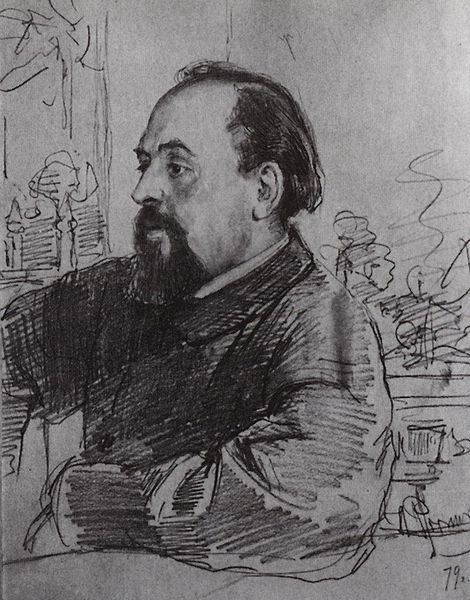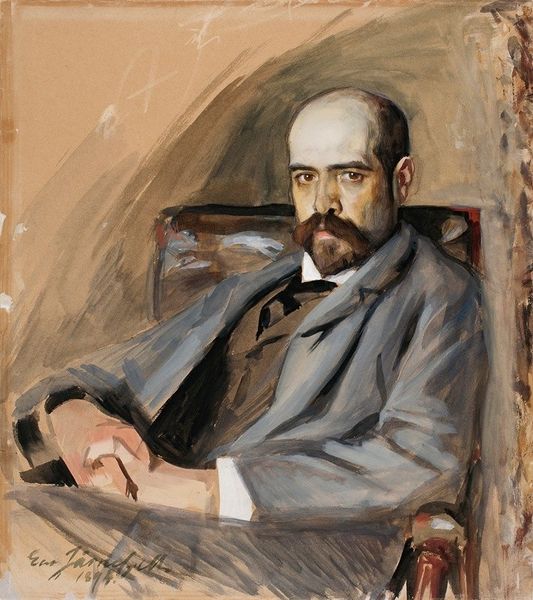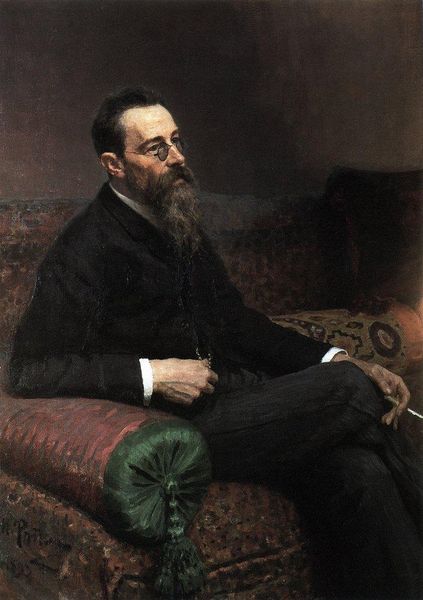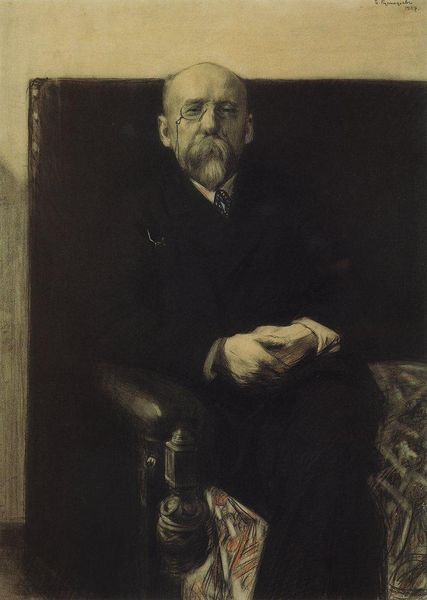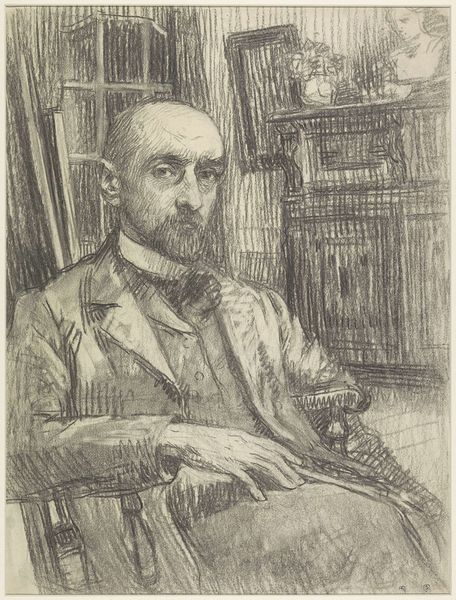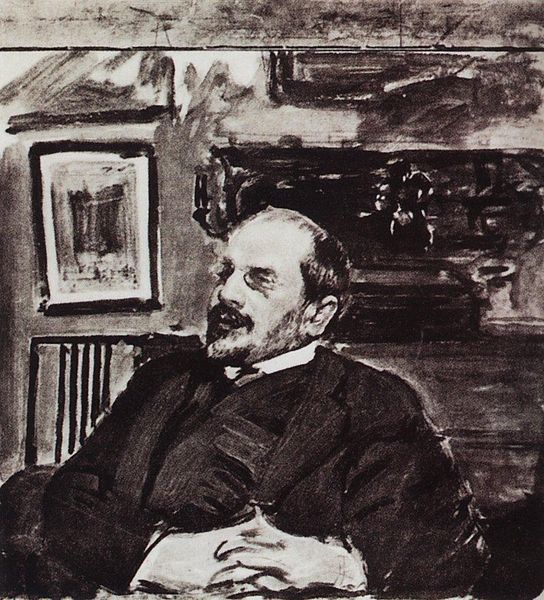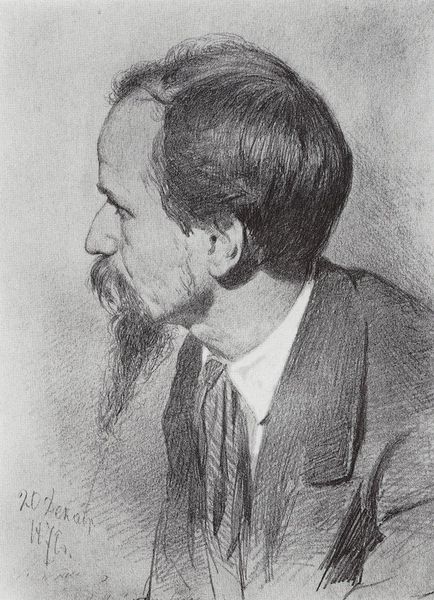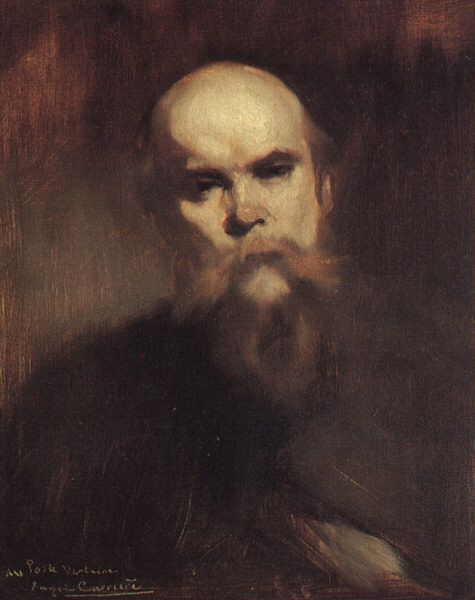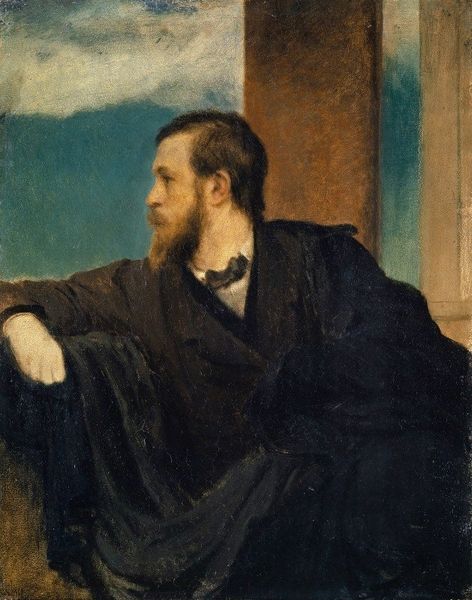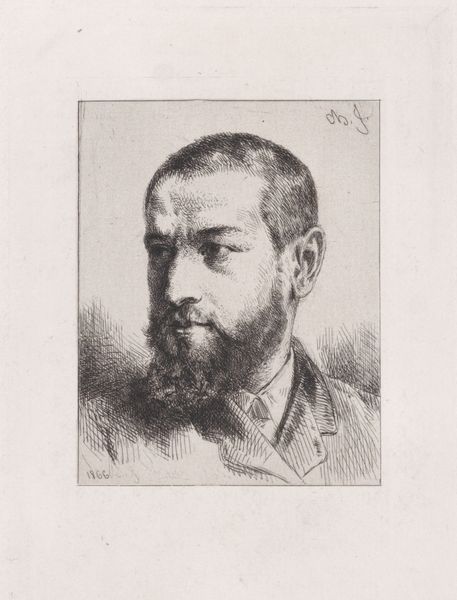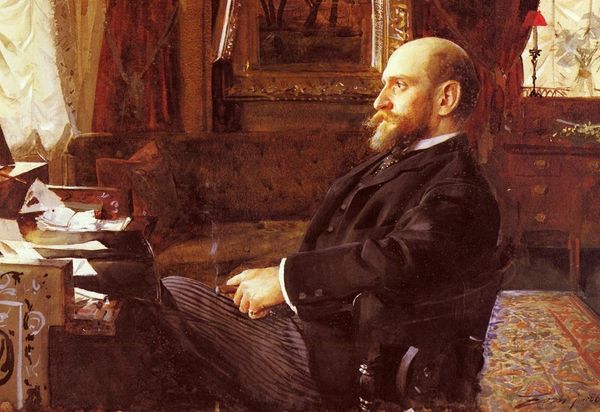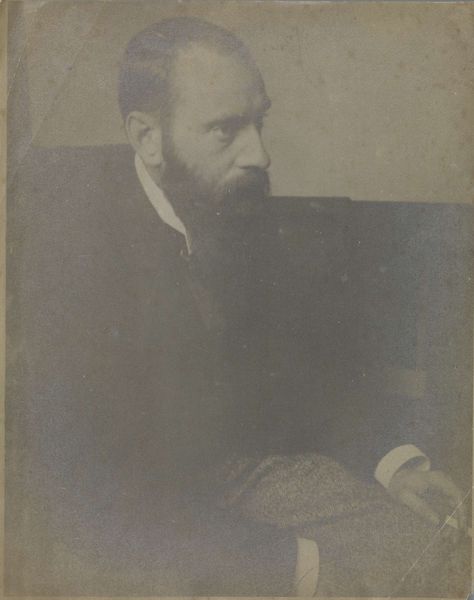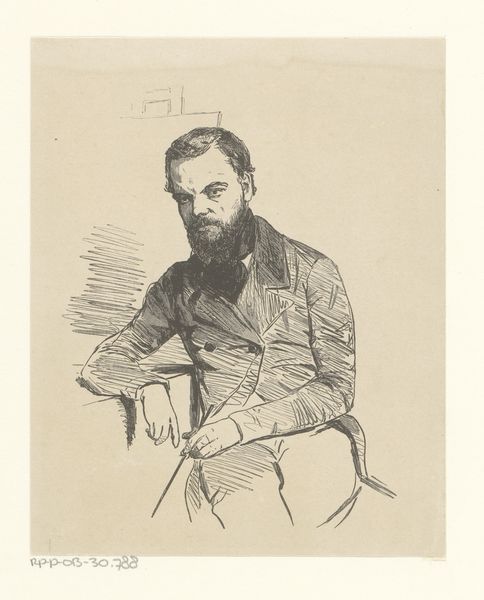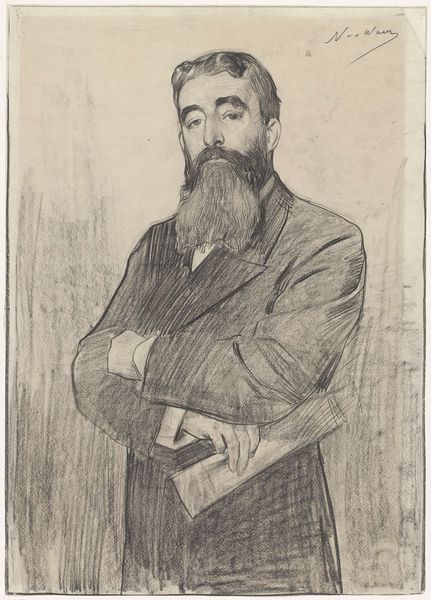
Copyright: Public domain
Editor: We're looking at Ilya Repin's 1878 oil painting, "Portrait of the artist R. S. Levitsky." It strikes me as a very contemplative and serious portrait. What layers do you see beneath the surface of this painting? Curator: Considering the period, it's crucial to think about the social function of portraiture within the Russian intelligentsia. Repin, aligned with the Peredvizhniki movement, used realism as a tool for social commentary. This wasn't just about depicting Levitsky's likeness, but situating him within the burgeoning intellectual and artistic circles that challenged Tsarist authority. How does Levitsky's pose – his gaze directed away, his slightly disheveled appearance – contribute to this narrative of the artist as a critical thinker? Editor: That's fascinating. I hadn’t thought about the political undertones. So, his thoughtful expression is perhaps a symbol of dissent? Curator: Exactly. And consider the gendered aspect: artists, often male, assuming a posture of intellectual authority and questioning societal norms. How does the depiction of Levitsky contrast with typical idealized portraits of the aristocracy at the time? It moves away from those patriarchal structures to make its own meaning. Editor: It's a stark contrast, really. It’s less about status and more about… intellectual labor, maybe? I can see how the realism serves as a form of quiet resistance. Curator: Yes. The loose brushwork, the muted palette—they all reject the rigid formality of academic art, further aligning Repin and his subject with a more progressive, socially conscious ideology. Considering the history of that period in Russia really shapes the work. Editor: This has completely changed my perspective on the painting! I was initially focused on the formal aspects, but understanding the social and political context unlocks a whole new dimension. Thanks for showing me a more critical point of view. Curator: It's crucial to remember that art never exists in a vacuum. By interrogating the historical and social forces at play, we can truly appreciate its complexities and its potential for affecting change.
Comments
No comments
Be the first to comment and join the conversation on the ultimate creative platform.
